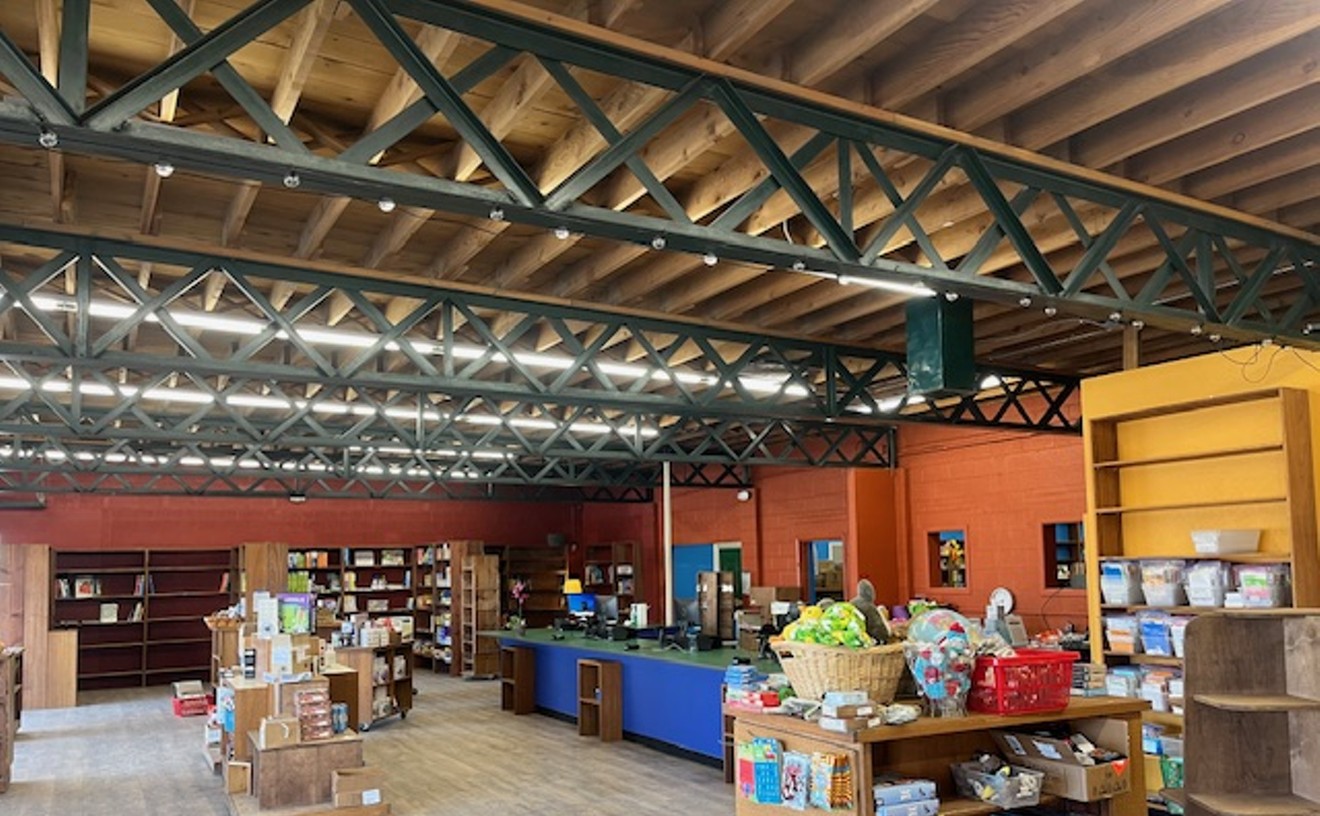An installment in the Curious Theater's free Backstage Pass series that opens up matinee performances, the event was a tie-in to the theater's current show, Astronomical Sunset, and featured live performances of Mozart's string quartet compositions by the Colorado Chamber Players, as well as the reading of Kate Light's poem "Einstein's Mozart: Two Geniuses" by Curious actors.
It was a marked departure from the pairing of Edgar Allen Poe's words and Andre Caplet's music at the Backstage performance last month. Where the previous performance had lent a dark and foreboding feel, the marriage of Light's verse and Mozart's chamber work made for an expansive mood, a hint of the infinite that came through in the elegant, evocative melodies and the poetic summary of Einstein's scientific revolution.
The loftiness of Einstein's scientific ideas and the inspiring heights of Mozart's artistic achievement found space and complement in the CCP's performance. Just as Einstein would play the violin to give his brain space to function, the live musical element of the performance strengthened Light's verses. An especially potent rendition of Mozart's fugue for string quartet in C minor boasted a raw emotion and evocative power.
"There's something about playing an instrument that takes the mind elsewhere from our normal state," said Barbara Hamilton-Primus, the artistic director of the CCP after the performance.
Curious Theatre Artistic Company Member David Russell and Modern Muse Theatre Company co-founder and artistic director Gabriella Cavallero narrated excerpts from Light's massive 2005 poem, a piece that ties the lives and accomplishments of Einstein and Mozart together through whimsical, playful verse. The CCP players -- Barbara Hamilton-Primus on viola, Katharine Knight on cello, Paul Primus on violin and David Waldman on violin -- offered a selection from Mozart's string quartet work, music composed relatively late in the artist's life, which only spanned 35 years.
Light's poem sketched out the major achievements of both Mozart and Einstein in sing-songy fashion that at times echoed Dr. Seuss. In their narration, Russell and Cavallero traded verses seamlessly, capturing the child-like awe of Light's verse in their measured, subtle delivery.
The poem, commissioned in 2005 by the Colorado Chamber Players, summarizes the intellectual strides the 26-year-old Einstein made in 1905, the "miracle year" that saw the publication of the physicist's groundbreaking papers regarding the nature of light, the relationship between time and space and his definitive theory of relativity.
The poem also encapsulates the life of Mozart; the young prodigy's exhaustive tours across Europe, his early mastery of a wide menu of musical ideas and idioms, the loneliness of his brilliance and the deep emotion that drives pieces like his fugue. In her poem, Light draws parallels from these two lives separated by more than a century. Both revolutionized their fields, both created an entirely new way of looking at their worlds. Most importantly, both worked from flashes of inspiration, sudden insights that they raced to refine on paper.
Such ties were clear in quotes from both Einstein and Mozart that decorated placards near the entrance to the hall.
"Music has no effect on research work," Einstein wrote, "but both are born of the same source and complement each other through the satisfaction they bestow."
The next collaboration -- a reading of love-themed literature and a performance of the "Eight Pieces" by Max Bruch and Rebecca Clarke's "Prelude, Allegro and Pastorale" -- will take place at 1 p.m. on Feb. 13 at the Curious, 1080 Acoma St. in Denver.










